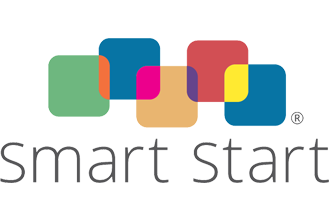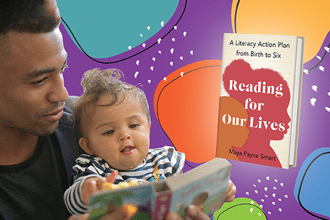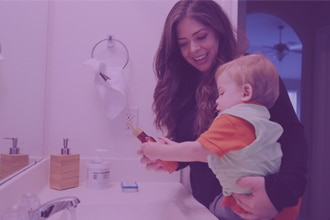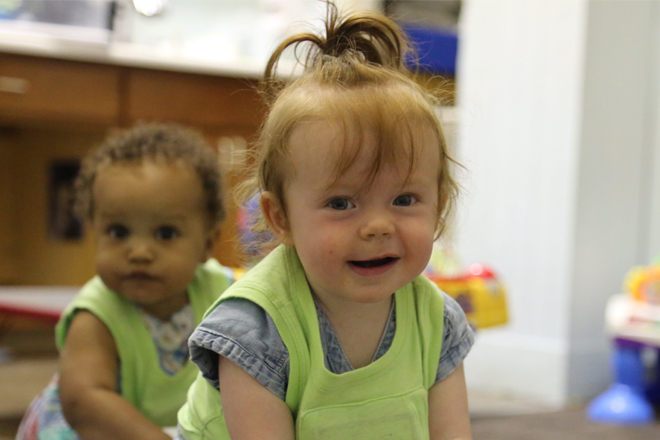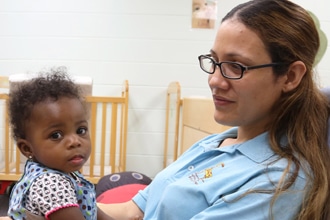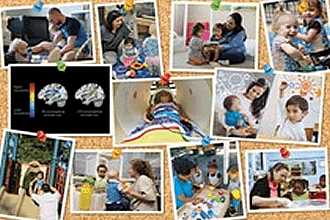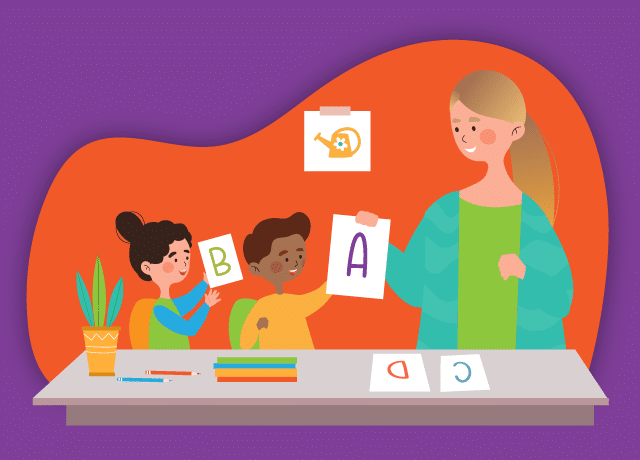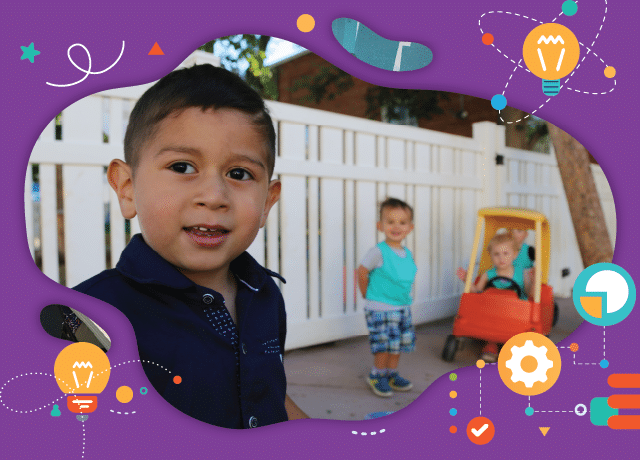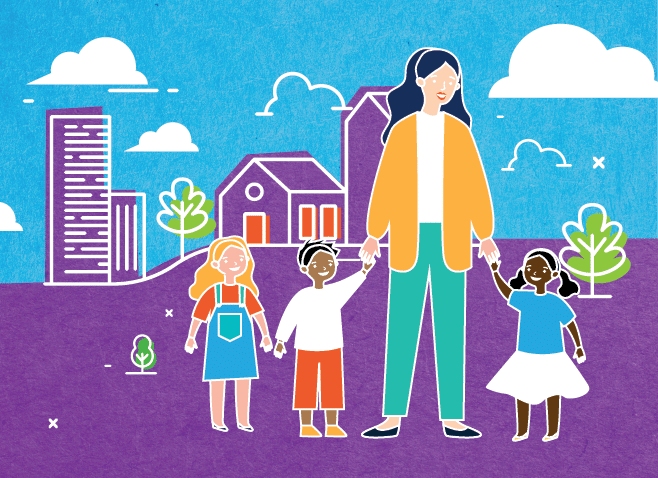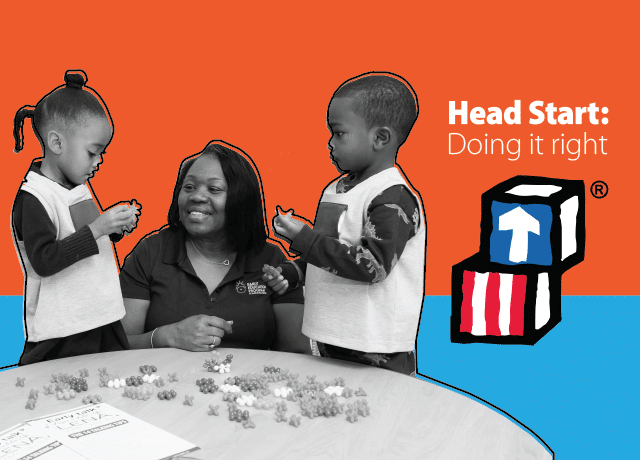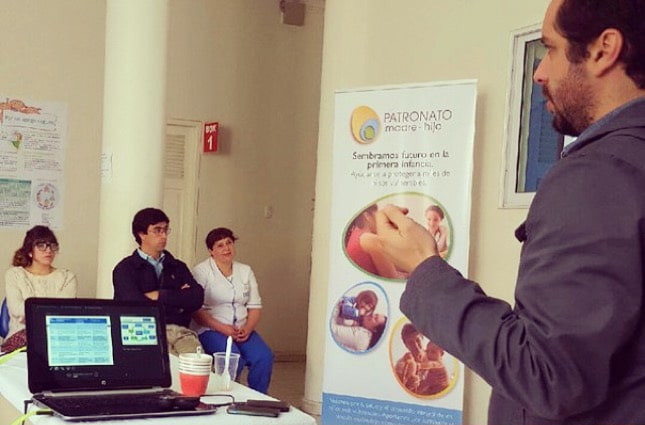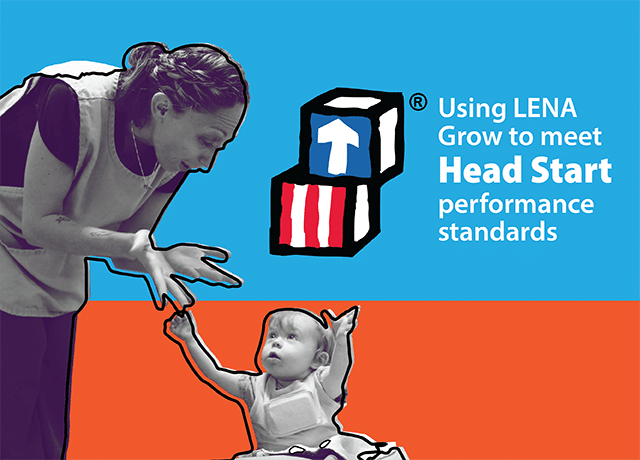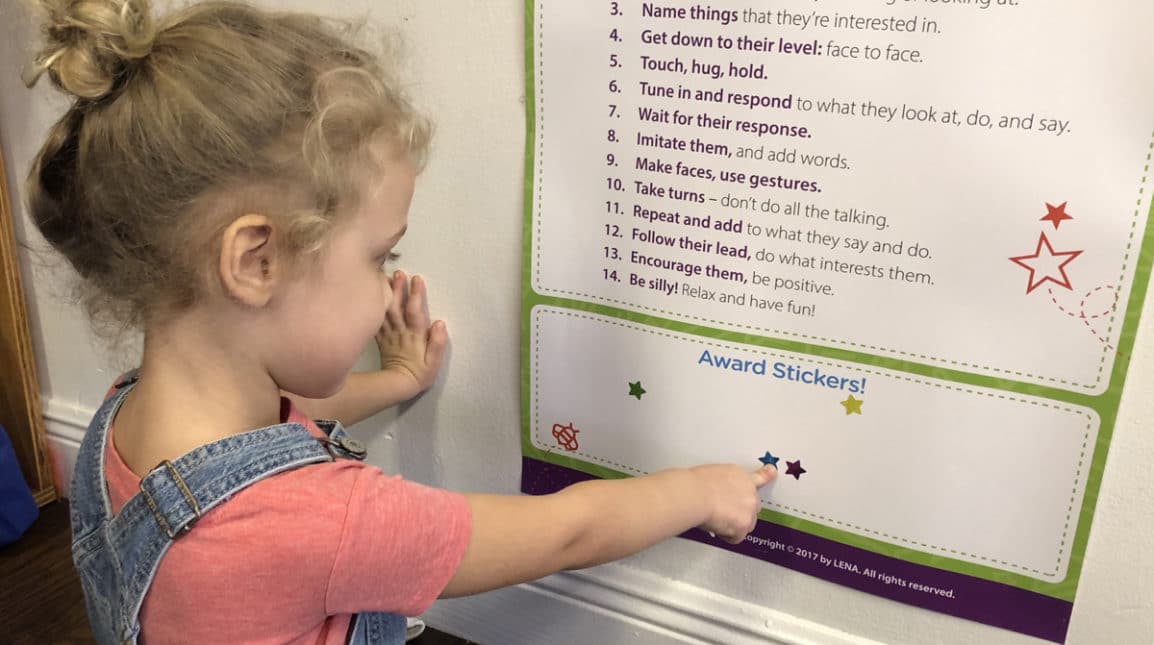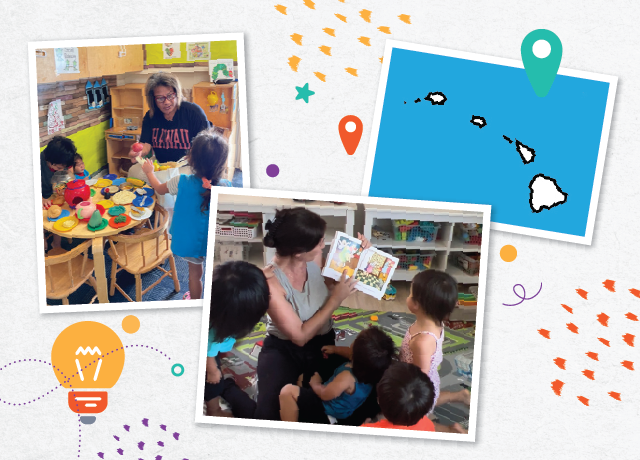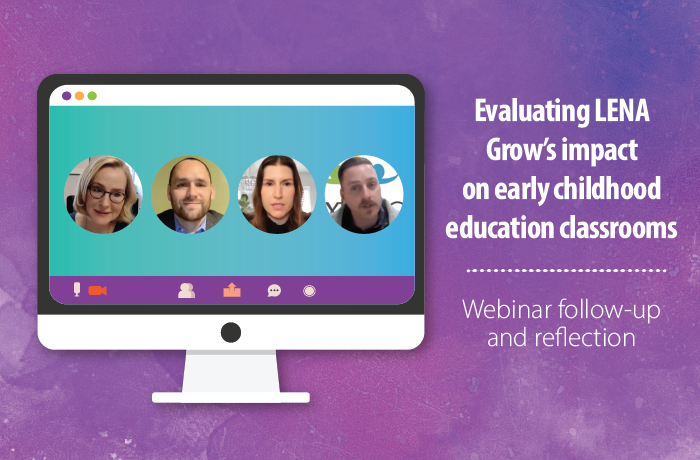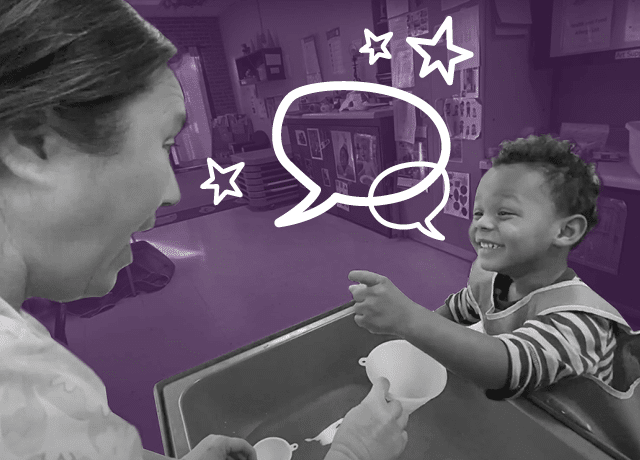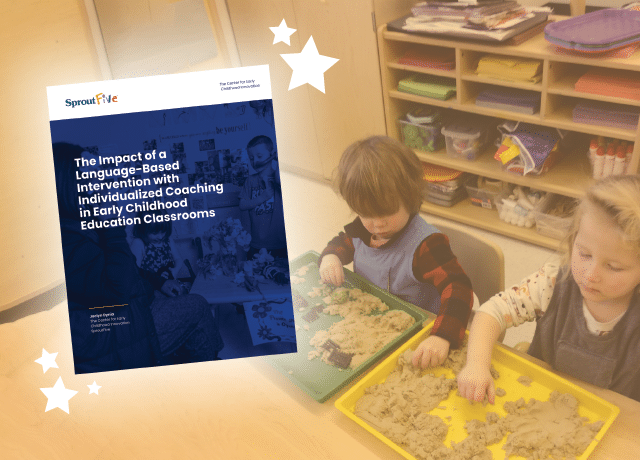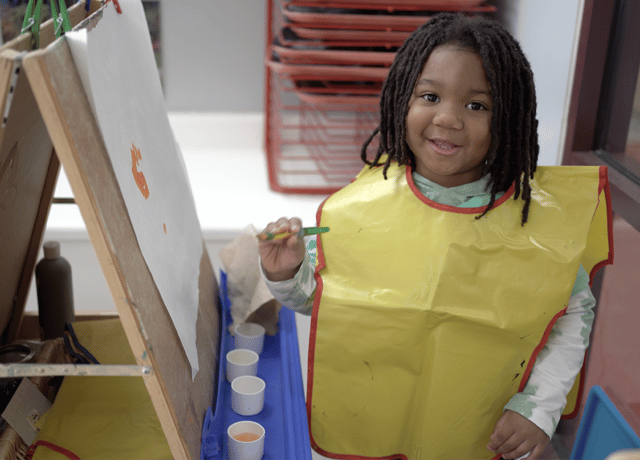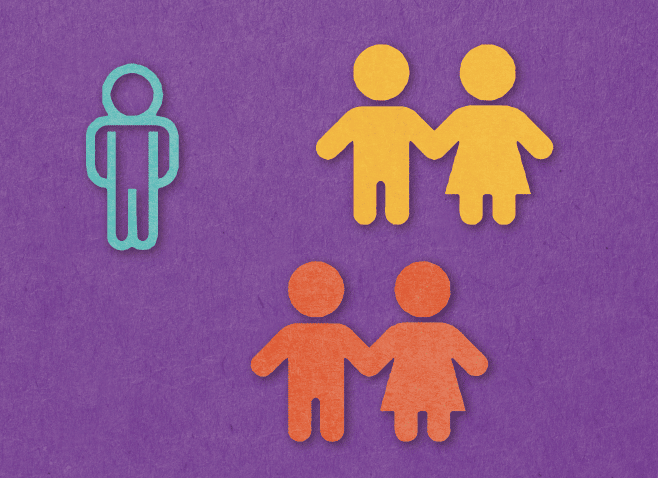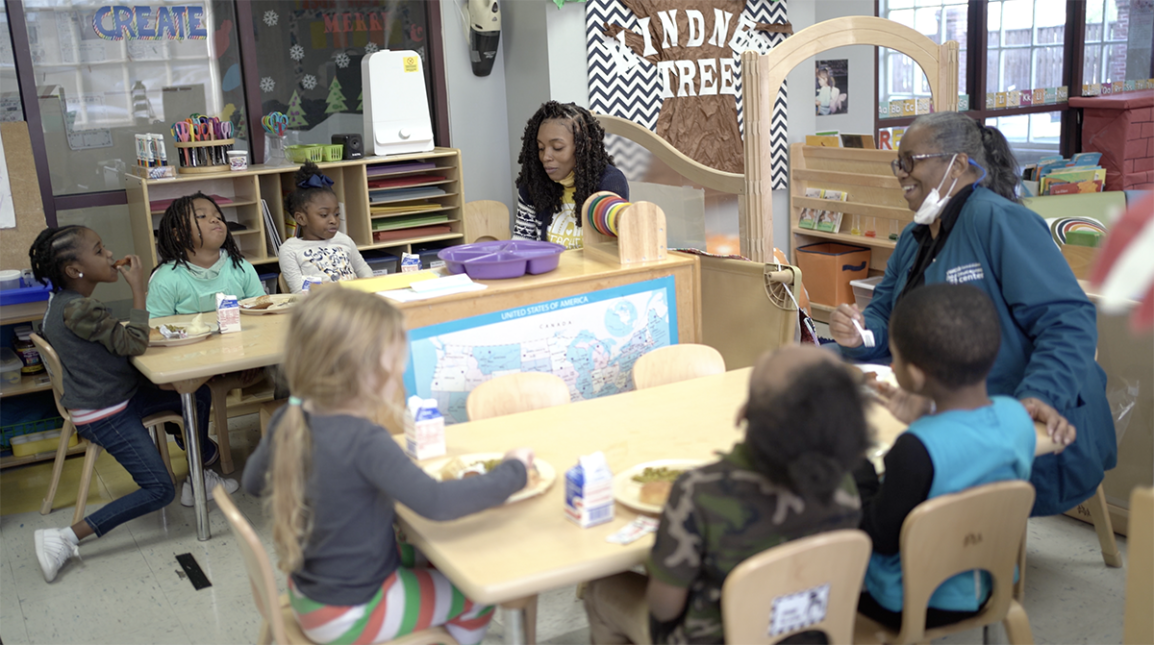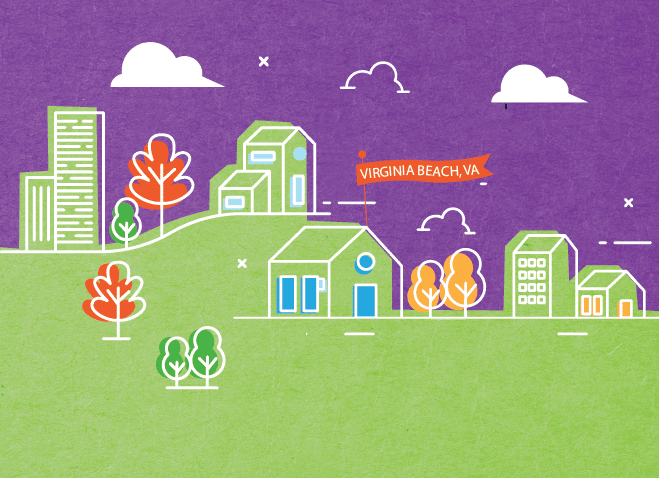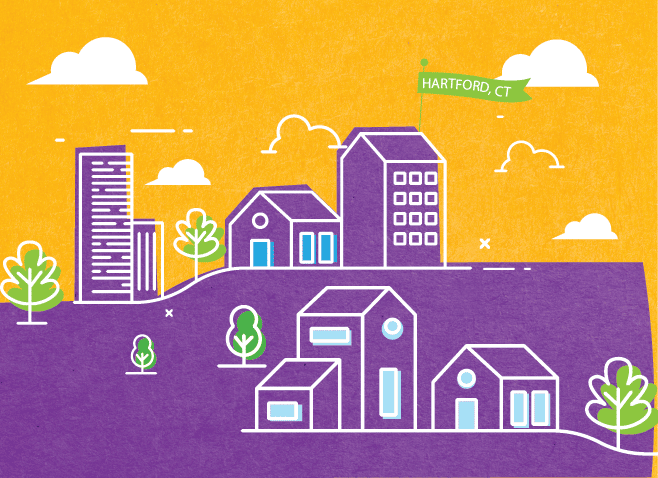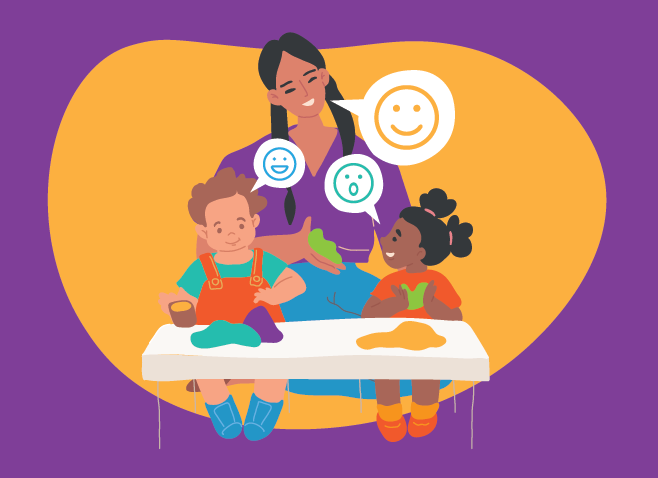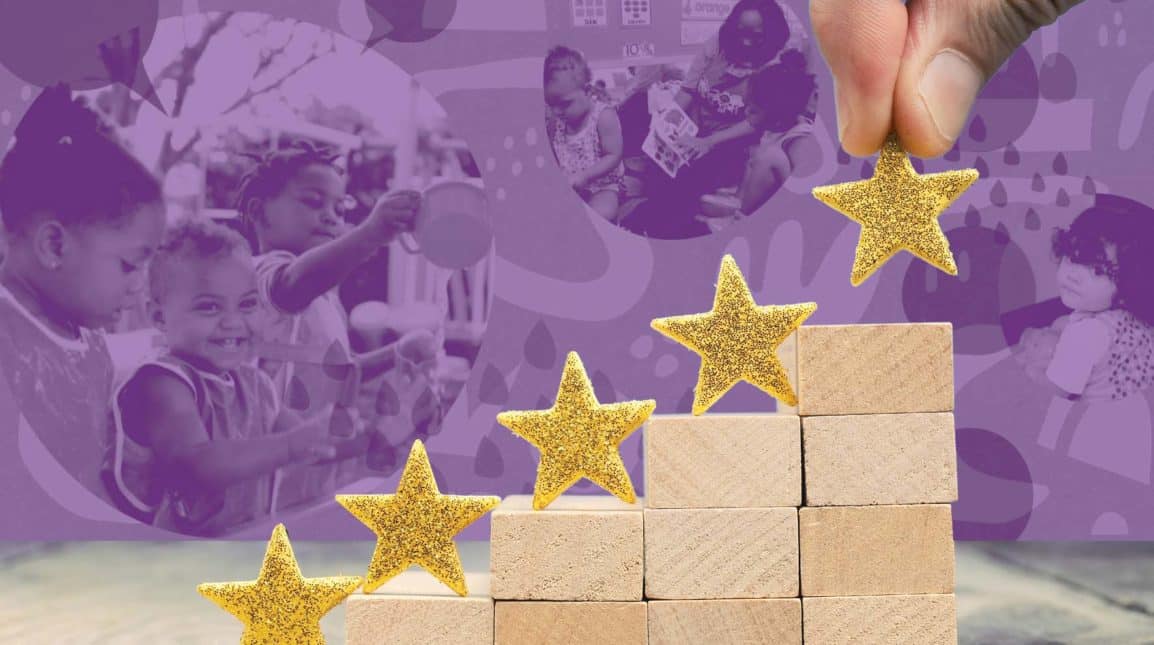Learn how LENA technology supports positive outcomes for social-emotional, language, and cognitive development, delivering equity-minded insights into how children experience interactions on an individual level. Hosted by Smart Start.
Webinars (7)
“Reading for Our Lives”: A conversation about early talk and early literacy with Maya Smart
In her book Reading for Our Lives: A Literacy Action Plan from Birth to Six, Maya Smart uses the analogy of a road trip to describe the “road to reading” for parents of young children. Early talk can jumpstart the journey.
Kindergarten readiness and conversational turns: Study results point to a boost from LENA Start
A study out of South Carolina has found a correlation between increased conversational turns and higher scores on the state’s Kindergarten Readiness Assessment.
What the Texas Rising Star QRIS can tell us about quality child care interactions
In Texas, the most recent review of the early childhood QRIS called for a greater emphasis to be placed on caregiver-child interactions. How is Workforce Solutions for North Central Texas using LENA Grow to help child care providers increase quality adult-child interactions?
The link between language and socioemotional development
Many previous studies have drawn connections between the quantity of back-and-forth interactions in early childhood and later linguistic and cognitive skills. Importantly, newly published research conducted in Chile has taken a novel direction, determining that infants’ language environments predict their socioemotional skills one year later.
The Power of Conversational Turns
Three studies published in 2018 show the relationship between conversational turns and brain development. Join us for a discussion with the lead researchers, Drs. Jill Gilkerson and Rachel Romeo, moderated by Shannon Rudisill of the Early Childhood Funders Collaborative.
Beyond the 30 Million Word Gap: A Conversation with Dr. Rachel Romeo
Join LENA’s president and chief operating officer, Dr. Steve Hannon, as he hosts a conversation with Dr. Rachel Romeo, lead author on a study from Harvard and MIT that sheds light on the underlying neural mechanism that makes conversational turns so critical for brain development.
Blog Posts (24)
Dual language learners experience less teacher-child interaction in child care and preschool: New data analysis
Early childhood education classrooms across the U.S. provide significantly fewer conversational turns for children who are dual language learners than for their monolingual peers.
“Everyone has their niche, and my niche is little kids”: One teacher’s journey in cultivating her students’ voices
One veteran teacher’s LENA Grow journey: “It kind of goes back to my childhood. I struggled with learning. I never really had anyone who taught me that as long as I kept trying, I could.”
State leaders on sustaining and scaling quality initiatives in early childhood education: Five lessons learned
Lesson #1: States can fund quality initiatives without sacrificing their commitment to access. … What else did we learn from state leaders in Ohio and Tennessee about scalable early childhood initiatives?
Learning to read (and write) starts earlier than you think!
Dr. Lucy Hart Paulson, co-author of LETRS for Early Childhood Educators, on how learning to talk and learning to read and write happen in parallel. Learning to read starts earlier than you think, and conversational turns are an important piece of the puzzle!
Tips for organizing early education classrooms to increase conversational turns
Your room’s arrangement, materials, and how you present them all affect learning, for both the children and you. How can you create a space that lets you focus on strong relationships with the children you care for?
Highlights from a Qualitative Evaluation of LENA Grow in Hartford: Nine Takeaways
Researchers from the University of Hartford highlight nine key insights from Hartford’s qualitative evaluation of the LENA Grow program in Hartford, Conn.
The power of conversational turns in early childhood education: Head Start is doing it right!
There’s a lot that goes into creating high-quality early childhood education. One simple yet powerful ingredient is a focus on fostering teacher-child interactions and creating robust language environments. Head Start and Early Head Start One show tremendous promise in that regard.
Study finds causal link between conversational turns and socioemotional development in babies
Updated with new data insights! Researchers in Santiago, Chile, have used LENA technology to show important connections between conversational turns and social-emotional development in very young children.
How Early Head Start/Head Start grantees use LENA Grow to meet performance standards during federal review
“The federal review team was impressed that LENA Grow was something we were doing for our teachers in the classroom,” said Jon-Vincent Jamir, PACT’s Head Start Area Manager and LENA Grow coach.
Coaching for impact in Sarasota County: Increased TS GOLD® and CLASS® scores
An organization in Florida saw some amazing results in their very first LENA Grow classrooms. They want those results to have a positive impact on the whole community.
“I probably think about the program every day”: When professional development is more than just a program
“One of my students, he came in and told me, ‘Auntie, I’d like to read to you.’” A preschool teacher and a family child care provider in Hawaii tell their stories. What keeps them excited and motivated?
Evidence-based professional development for early childhood educators: Webinar highlights
Two independent program evaluations of LENA Grow have established the program as evidence-based professional development. See the highlights from the webinar here.
“Mae Mae’s House”: One teacher’s story behind an evaluation of LENA Grow in Milwaukee
In this video, a long-time preschool teacher in Milwaukee reflects on LENA Grow and what motivates her dedication to the profession.
Bridging research and practice in early childhood education: SproutFive’s independent evaluation of LENA Grow
True to their commitment to bridging research and practice, SproutFive embarked on an independent evaluation of LENA Grow soon after implementing the program.
New research links early vocabulary skills to teacher-child interaction in preschool classrooms
“For all of us who care about the millions of children who spend most of their waking hours in child care, this is a call to action,” said Dr. Jill Gilkerson, Chief Research and Evaluation Officer at LENA.
New data analysis: One in five children in child care spends most of the day in language isolation
According to LENA’s recent analysis of day-long audio recordings from 15,820 children, approximately one in five children spent most of the day in language isolation.
Classroom interaction and teacher experience: Relationships between conversational turn rates and years of experience in child care
While more experienced teachers foster more interactive talk in their classrooms, participating in LENA Grow helps less experienced teachers catch up.
Early literacy and early talk: Webinar highlights featuring author Maya Smart
In a recent webinar, author Maya Payne Smart shared her vision for our “collective power to raise our readers well.”
Providence Talks Replication: A renewed commitment to quality child care in Virginia Beach
“Investing in our youngest citizens at birth and continuing to do so throughout their school years makes smart economic sense,” says Virginia Beach GrowSmart coordinator Barbara Lito.
Providence Talks Replication: Building city-wide impact one family at a time in Hartford
Entering its fourth year, Hartford Talks is focusing on families. Here are two families’ LENA stories.
Research shows links between LENA Grow participation and social-emotional growth
Analyses reveal strong evidence that LENA Grow may give children’s social-emotional development a boost.
Research Roundup: NICU interventions enhance interactive talk with premature babies
Two recent publications from researchers at Women & Infants Hospital of Rhode Island highlight the promise of interventions aimed at increasing preterm infants’ exposure to adult interaction in the NICU.
How LENA Grow teaches a coach to be a better coach
Seven ways LENA Grow has helped me help teachers take active charge of their own learning.
QRIS and interaction: Do quality rating systems reflect individual experience?
Data analysis suggests that approximately 1 in 4 children experiences very little adult-child interaction, even within classrooms at centers that have achieved the highest QRIS rating possible.
Articles (25)
What’s behind a spike in childhood speech development delays across the U.S.
PBS Wisconsin's Zac Schultz reports on what's behind the delays and whether schools have the resources to help teachers, students and caregivers.
In Babies’ Brains, White Matter Is Crucial—and Conversational Turns Make It Grow
A study published in the Journal of Neuroscience uses MRI and LENA technology to show that conversational turns as early as six months of age uniquely predict brain development at two years of age.
‘It is life-changing!’: Virginia Beach TALKS offers free early learning class for parents
Parents and coordinators reflect on the success of Virginia Beach's LENA Start program as it celebrates its third year.
Podcast: Racing to get kids reading
People Fixing the World: How a race to write books and a gadget that counts words are helping child literacy.
Pandemic has made babies and toddlers miss talking and reading milestones
Multiple studies show that infants are talking less because parents haven't been able to engage them in language developing conversations due to COVID.
Covid-Era Babies Are ‘Talking’ Less, Signaling Future Reading Challenges
We know the pandemic has had a serious negative impact on the academic achievement of school-age children. But recent evidence shows we also need to worry about Covid-era babies and toddlers.
Do COVID Babies Talk Less
A decline in socializing during COVID could mean less verbalizing for babies born during the pandemic.
New Research: Babies Born During COVID Talk Less with Caregivers, Slower to Develop Critical Language Skills
Infants born during the pandemic produced significantly fewer vocalizations and had less verbal back-and-forth with their caretakers compared to those born before COVID.
Pandemic Kids Need Early Language Support. Here’s How Teachers Can Help
To avoid widespread school readiness gaps, experts say teachers and parents need to give children born since the pandemic an immediate language infusion.
Babies Are Saying Less Since the Pandemic: Why That’s Concerning
Amid the stress and disruption of the pandemic, parents and caregivers have had less time and energy to engage their babies and toddlers in conversation—and the lack of talk already shows in their language skills.
Can science help poor kids earn more?
In a provocative video, Economist Films explores the role conversational turns may play in what they call "breaking the class ceiling."
Parents in Delaware Can Improve Their Child’s Literacy Through This Device
"It's a great tool that parents can use that helps them be able to have better conversations for a lack of better terms with their children," said Monica Mandujano, the Spanish coordinator for Lena Start in Delaware.
Parenting: It takes a village
In this podcast episode, host Walter Isaacson and guests discuss parenting, how it's evolved from a group activity to something more singular, and how experts and technology are filling in the gaps for new parents.
Families find success in LENA Start program
Read Aloud Delaware's LENA Start program, launched in September 2020, has made an impact for families in a short span of time.
Southwest Colorado program helps parents grow child’s literacy
Families are invited to enroll in a new program to boost language development in infants and toddlers in southwestern Colorado.
Deploying the Power of Talk for Toddlers Reaps Academic and Social Rewards As They Become Adolescents
Conversation with children is a free, powerful, proven tool to boost children’s IQ, language development, and vocabulary into adolescence.
Read Aloud launches initiative to close literacy and talk gap
A statewide nonprofit in Delaware will launch LENA Start to connect with families during the pandemic.
Roberts: Parent Coaching Can Relieve Stress, Bolster Babies’ Language Skills and Create a Deeper Sense of Community
Carly Roberts, a senior program officer at the Overdeck Family Foundation, explains why it is crucial to coach and support parents to benefit children.
Read Aloud Delaware Launches New Partnership to Close Literacy and Talk Gap in Children
Read Aloud Delaware is partnering with a national nonprofit, LENA, to close the talk and literacy gap in children.
The More You Talk to Your Babies, the Smarter They’ll Be as Teens, New Study Finds
Conversations with babies are vital to early growth and development, a 10-year study suggests.
Sioux City recognized for work in supporting early school success
The Campaign for Grade-Level Reading has recognized Sioux City with Pacesetter Honors for its work in 2019, including using LENA Home to boost school readiness for infants and toddlers.
‘Word pedometer’ aims to improve language development for children in Southwest Colorado
LENA Grow and LENA Home encourage teachers and parents to converse more with infants and toddlers in Southwest Colorado.
This Powerful Activity Can Change Your Child’s Brain
Back-and-forth conversations have a significant impact on language development and are important for social, emotional, and cognitive development.
Wyndham Vale Childcare Centre in Australian First to Use Technology to Boost Language Development in Early Childhood
For the first time, an Australian child care center is using LENA Grow professional development with early childhood teachers.
Video: Beyond babble, back-and-forth conversations are critical for baby brains
A video spotlight showcases how early childhood teachers use LENA Grow.



